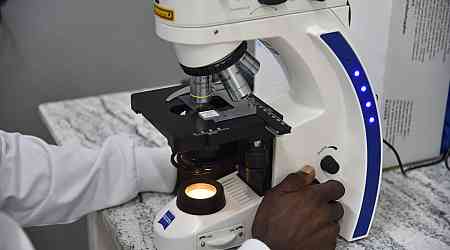Geneva — The World Health Organization is warning that millions of people caught in conflict-driven health emergencies risk dying from traumatic wounds and infectious diseases because life-saving humanitarian aid is not reaching those in need.
In one of his most forceful statements to date, the WHO's director-general, Tedros Adhanom Ghebreyesus, accused the Israeli government of blocking essential aid to Gaza.
In a briefing to journalists Wednesday, Tedros said a humanitarian mission to northern Gaza planned for that day, the sixth since December 26, had to be canceled because "our requests were rejected and assurances of safe passage were not provided."
"Delivering humanitarian aid in Gaza continues to face nearly insurmountable challenges. Intense bombardment, restrictions on movement, fuel shortages, and interrupted communications make it impossible for WHO and our partners to reach those in need," he said. "We call on Israel to approve requests by WHO and other partners to deliver humanitarian aid. ... Health care must always be protected and respected; it cannot be attacked, and it cannot be militarized."
WHO officials say Gaza is buckling under what they call a perfect storm for the proliferation of disease. As of January 1, it has documented nearly 200,000 respiratory infections and tens of thousands of cases of scabies, lice, skin rashes, and jaundice.
The agency says 2,140 cases of diarrhea among children under five in Gaza were reported in 2021-2022; by November 2023, that number had increased 20-fold to 42,655 cases.
"This is an underestimation," said Rik Peeperkorn, WHO representative for the occupied Palestinian territory, speaking in Jerusalem. "We lack access to health facilities. ...So, the situation is likely to be worse.
"If the situation is not improved, we can expect more outbreaks and deaths," he warned.
Gaza's Hamas-run Ministry of Health says at least 23,357 Palestinians have been killed and 59,410 injured since Hamas terrorists invaded Israel October 7, killing 1,200 people, and taking some 220 hostages.
The WHO says it is impossible to access the population in Gaza without an effective deconfliction system in place because of the massive destruction of Gaza's public health infrastructure and continued intense hostilities.
"We have heard various comments that the U.N. isn't doing enough," said Michael Ryan, head of the WHO's Health Emergencies Program.
"If you continue to destroy infrastructure, if you continue to destroy services at this rate, and then you blame the people who come in and support and provide life-saving assistance--who is to blame here?" he said. "We are on the ground, and we are serving. We can do much more. We must be given the means to do much more, but right now that is not possible."
In a virtual briefing Friday, Col. Elad Goren, head of the civil department of COGAT, the Israeli agency that facilitates aid in Gaza, said the "narrative of blockade -- that is completely false."
He said that U.N. and other humanitarian agencies have told him that there was a "sufficient amount of food in Gaza and we continue to push the humanitarian agencies to collect more trucks at the borders and to distribute them."
He added that "Israel has not and will not stand in the way of providing humanitarian aid to the people of Gaza that are not a part of terror. They are not our enemy."
While Gaza continues to dominate headlines globally, WHO chief Tedros warned that millions of people in other countries in conflict, notably Sudan and Ethiopia, are threatened by increasing violence, mass displacement, spread of disease, famine, and death, and must not be forgotten.
In the past month, he said conflict has displaced half-a-million people from Al-Gezira state, which used to be a haven from the conflict in the Sudanese capital, Khartoum.
"Due to security concerns, WHO has temporarily halted its operations in Al-Gezira," he said. "The state is also considered the breadbasket of Sudan, and fighting there has disrupted the annual harvest, and increased the risk of food insecurity in conflict-affected areas."
Tedros also said conditions have deteriorated especially for Sudanese children since war erupted in mid-April, noting an estimated 3.5 million children under the age of 5 -- one in seven -- are acutely malnourished, and "more than 100,000 are suffering from severe acute malnutrition, requiring hospitalization."
Tedros expressed grave concern about the worsening health crisis in parts of Ethiopia, saying the northwestern region of Amhara has been badly affected by conflict since April and restrictions on movement were hampering efforts to deliver humanitarian assistance.
"Fighting is affecting access to health facilities, either through damage or destruction, roadblocks, and other obstacles," he said. "Health authorities are unable to deliver training and supplies and are unable to transport samples for laboratory confirmation in many areas.
"Disease outbreaks are spreading in northern Ethiopia, as the result of conflict, drought, economic shocks, and malnutrition, especially in the Tigray and Amhara regions," where many people reportedly were suffering from near-famine conditions, he said, adding that "the most pressing need is for access to the affected areas, so we can assess the need and respond accordingly."



























